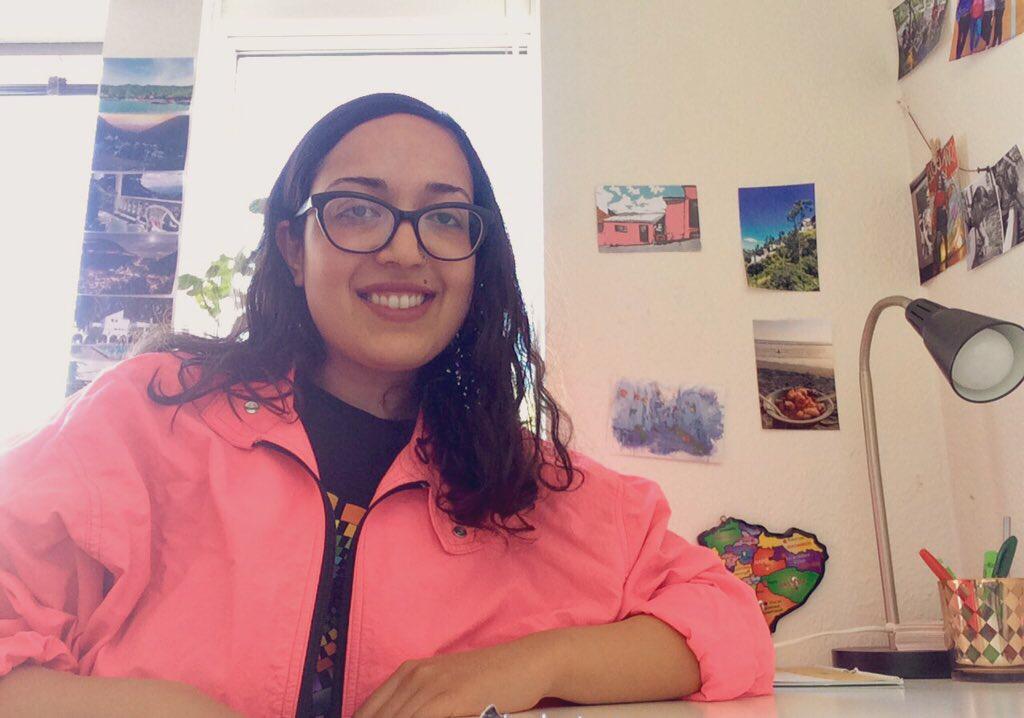Mundusians under the Covid-19 Lockdown: Part 4 - Urooba Jamal
Welcome to the fourth interview in our series about Mundusians under the Covid-19 Lockdown. Today, we say hello to current first-year student Urooba Jamal who shares her lockdown experience from Aarhus.

Denmark went into lockdown on March 11th and is slowly starting to ease the restrictions that were put in place to slow the spread of Covid-19. But what does the lockdown mean for current first-year students in Aarhus? Today, we’re catching up with Urooba Jamal to find out.
Urooba started studying on the Mundus Journalism programme in Aarhus in September 2019. She is from Canada and while studying full-time on the programme she also freelances occasionally and reports on global social and political issues.
Mundus Journalism: What is the situation like in Aarhus right now? How long have Covid-19 measures been in place? What’s the mood like?
Measures in Denmark have been in place for 49 days as of April 29th, and most public institutions have been shut down. Gatherings of more than 10 people have also been banned, while the border remains closed. However, Denmark is slowly easing restrictions, with school children returning to school a week ago, and some small businesses reopening in the past week.
Mundus Journalism: How have the measures affected your studies at Aarhus University?
All of our classes have been moved online. It’s been a strange adjustment, going from seeing 63 of my classmates everyday in lectures, to now just seeing boxes on the screen during our online class sessions! I also really miss having vibrant, in-person class discussions -- unfortunately online classes aren’t necessarily conducive to that. It’s also admittedly been disappointing to not have the opportunity to speak to our professors about our projects and assignments in person, and instead having to do so through short Skype sessions. On the plus side, Denmark has still allowed gatherings of up to 10 people, so we are all still taking the opportunity to meet in small groups to take advantage of the glorious spring weather we’ve been lucky to have.
MJ: How have the Covid-19 measures affected your work?
I wrote a piece for Al Jazeera recently about the impact of the pandemic on refugees and migrants in Denmark and all of my reporting was 100% remote, with interviews done solely through phone calls. Whereas in the past I would have gone in the field to conduct interviews, visiting the asylum centers and speaking in-person with the refugees I interviewed for the piece, I now had to rely on online networks to get in touch with them. This was challenging not only because I had to rely on third-party organizations and groups to give me contacts, but it was also harder to build trust and rapport with my sources, speaking just through the phone.
Additionally, my summer internship with the Associated Press’ London bureau has been postponed, which has been a bummer of course, but I’m looking forward to having that experience once it’s possible again.
MJ: What kind of tools have you been using to facilitate working remotely?
Facebook groups, Twitter, Whatsapp - to search for and conduct interviews with sources.
MJ: Do you have any tips or tricks for fellow Mundusians working in the same field as you?
Have a home office setup where you can be productive, ideally near a window and with lots of natural light.
If you’re not in the field taking photos for your stories, ask your sources if they can supply you with some relevant ones.
Make use of Facebook groups to find sources in other geographic locations - many are willing to talk to journalists.
Take inspiration from other reporters working on stories remotely
MJ: How do you think the world will change in light of the Covid-19 pandemic?
I hope journalism will be regarded as the essential service it is, and that this will be reflected in the salaries, benefits and work conditions of journalists globally. There has been an ongoing crisis in the industry in recent years, with even more mass layoffs occurring as a result of the pandemic.However, I hope the tide turns dramatically in the other direction, because journalism is crucial in everyday life, and even more so during a crisis of this magnitude.
MJ: What are your wishes for the world after Covid-19?
I hope that the inequalities that Covid-19 is laying bare worldwide are also reflected in society, and that everyone agrees to the adoption of progressive policies such as universal healthcare, universal basic income, etc.
Thank you so much for sharing your insights and work with us, Urooba!
You can find Urooba’s latest article about how refugees and migrants are impacted by the pandemic here in Denmark, here: https://www.aljazeera.com/indepth/features/denmark-refugees-feel-left-lauded-coronavirus-policies-200403131644645.html?fbclid=IwAR0yO0JbaIXf22QmZ1DsBGXCweF0pMVk1yXhEkpLk0OUOMC_iPQ4bywir98
Want to join the Mundus Journalism MA programme next year? Applications will open again on 10th November 2020!